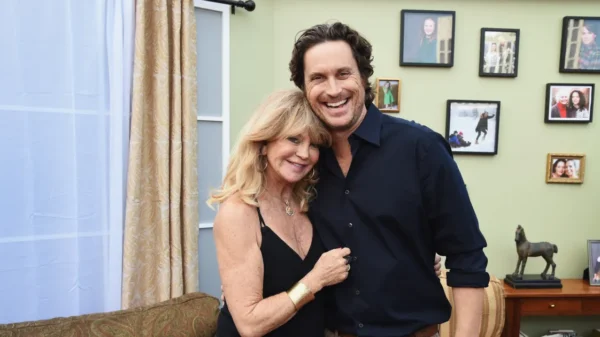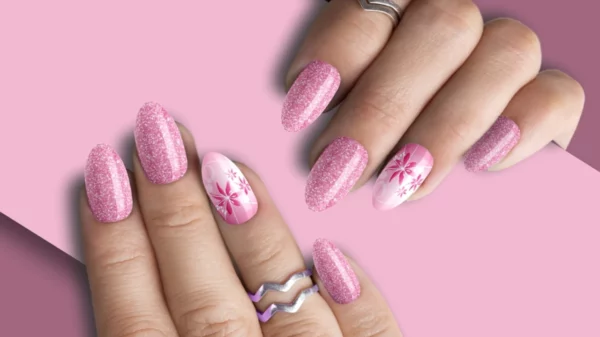A crash course in toxic femininity.
Most women think they’re easy to get along with. We think if men would just shape up, everything would be fine.
Toxic masculinity is the answer to every problem.
After years of dating stories and observations, I’m not so sure anymore. I think women spend a good chunk of their dating years just as confused and bewildered as their male counterparts.
It’s not always the guy’s fault. Sometimes women suffer from toxic femininity, the other side of the dating mirror.
Not all women are born with an innate talent for relationships. They don’t arrive with dating firmware. Sometimes it’s the woman who needs work. She might be vain or immature. She might be carrying baggage. Any problem a guy can drag into a relationship, she can too. And yet, she might spend half her life blaming men for her problems, because she’s highly attractive and successful. She might think she’s two pounds and one facial peel away from total perfection, flawed or damaged in ways that only make her more endearing, like all the movies she watches. She might anticipate a personal transformation, but it’s only slight.
Here’s a handful of accounts of what it’s like to date women like this, followed by some discussion of why it all matters:
“She was immune to compliments.”
One guy I know landed his dream girl, but it didn’t last long. She seemed to enjoy making him feel insecure.
Even his compliments weren’t good enough.
One day he complimented her eyes. Not just their color, their shape. They were in bed after dating for a couple of weeks. He just happened to notice them and thought he’d say something sweet.
She sighed. “Yeah, everyone tells me that.” Then she stared at him, like she was waiting for him to do better. They broke up a few weeks later. She said he wasn’t ready for a mature relationship.
This woman had been through some of her own tough relationships. She’d been dumped by rich, successful CEO types who used her for sex but never quite felt she was good enough to enter their social world. She was making the mistake of trying to exorcise her own relationship trauma by enacting it on someone else, otherwise known as baggage.
“She talked to her ex-boyfriend every day for six months.”
Another guy I know started dating a college friend later in his 20s. They’d always had a crush on each other. Serendipity brought them to the same city. He was in grad school. She was floating after a bad breakup with an emotionally abusive jerk.
Their relationship felt healthy and intuitive at first. They both loved reading and the great outdoors. She seemed drama free.
Then one day she confessed.
“So I’ve got to tell you something,” she began. “Promise you won’t get upset.” She explained she’d been talking to her emotionally abusive ex-boyfriend for months, every single afternoon, while he was in class or teaching. Even worse, she hadn’t even mentioned him.
They’d been dating for almost a year.
She was letting her ex think she was single and available.
She was keeping her options open. After all, the ex was almost done with med school and was still incredibly fit.
To his credit, my friend didn’t get upset. He tried to figure out what the ex-boyfriend was providing that he wasn’t. She promised to stop. She promised to commit. Of course, the ex-boyfriend found out about it all and flew down to see her. That’s when she decided it was too stressful to deal with. A few days later, she dumped them both.
“She was a serial flirter.”
This one couple, I met toward the end of college. We stayed in the same city and became a fixture of the same social groups. Boy, did she treat him like trash. They were both extroverts. They liked throwing parties. They liked holding court at bars.
She liked male attention on the side.
Sometimes it’s not that hard to see the guy’s angle when tensions escalate. She would break away from him at large gatherings, often ensconcing herself in prolonged conversations with random men. Some nights she spent so long flirting with other guys, it ruined their plans.
She was practically the only woman on earth to have a boyfriend who enjoyed dancing, and she burned it down to the ground. Anytime they went to a club, she would promise to meet him on the dance floor. Fifteen minutes later, he would find her trying to get guys to buy her drinks. She would pretend she was single, and then lie about it to him.
Their relationship ended a few days after he caught her spooning with his best friend at a Halloween party.
“She made fun of my whiskey dick.”
Another guy I know had no problem at all getting dates. Women used to hand him their phone numbers on the street. Strangers stopped him in grocery stores and tried to guess which celebrity he looked like.
You’d think a guy like that would have nothing to complain about, no weird stories. But he did struggle with erections, like a lot of guys. Coffee. Alcohol. A little stress. It didn’t take much. One of the handsomest, smartest men in the world had a pretty fragile boner.
Not everyone he dated was understanding.
One night he met a beautiful woman at a teachers’ conference. He wasn’t planning to hook up with anyone. As such, he didn’t think to pack his little blue pills. They went out to dinner, then wound up getting tipsy in her hotel room. That’s when she initiated sex.
When he couldn’t get it up, she started asking harsh homophobic questions about his sexuality. “Are you gay? Seriously, tell me.” It didn’t exactly help the mood. He got up to leave. On his way out she shouted, “Why are you so sensitive? I was just kidding!”
“She could make any conversation about my faults.”
Another guy started dating a girl he knew from the outdoor recreation shop where they used to work together. They spent a lot of their early dates hiking down trails and kayaking up rivers.
For a while, it felt like the ideal relationship. But it was hard to open up to her about anything. It felt like she was constantly vetting him.
If he ever mentioned an uncle with heart disease or a cousin with a drinking problem, she would tense up and start looking at him like he was contagious. One afternoon, she suggested he overhaul his diet.
He thought he was eating pretty healthy. He didn’t smoke. He rarely drank or ate red meat. He liked kale. That wasn’t good enough. She told him he had too many hereditary problems running in his family to ever veer from a strict vegan diet. She made it a deal breaker.
So he broke the deal.
Toxic femininity in a nut shell.
All of these stories point toward the same problem.
Toxic femininity.
When a woman has internalized normative ways of thinking, they almost can’t help but sabotage their relationships. They can’t get enough male attention, so they engage in reckless flirtation.
They hyper-evaluate their potential mates.
They’re so terrified of winding up alone and miserable, they engage in destructive mating behaviors, like keeping multiple boyfriends stashed all over the country — and not telling them.
They think every problem, including sexual dysfunction, is a comment on their physical appearance. If they’re a little crazy, it’s because society has filled their heads with a bunch of conflicting nonsense.
It takes a while to sort through all that.
Mature men don’t dwell on their relationship fails.
The mature men I know don’t demonize their exes. (The same goes for women.) They talk about them in a relatively objective way. They try to reflect on what happened, and what responsibility they share. Sometimes they share very little, and sometimes it’s a lot.
Most of the time, the woman isn’t crazy. The guy isn’t abusive. There’s just a problem that escalates too quickly for them to identify and handle. The woman might be unreasonable. But there’s a logic to her behavior, maybe something she won’t see until years later.
This happens a lot when you’re younger, because you’re inexperienced. The guys I know don’t get hung up on how they got screwed over by women in their 20s. But they tell some funny stories.
They learn from their experiences. No matter what happens, or how crazy the girl seems, there’s always a lesson in human behavior.
Let’s stop the gendered bad love narratives.
The problem with our stories of heartbreak is that we often filter them through gender stereotypes. We create our own cliches, or perpetuate the myths we see in pop culture.
Women can be narcissists, just as often as men. The problem is that it’s hard to describe a woman as a clinical narcissist without stumbling into a bunch of gender stereotypes that obfuscate. When we dismiss everyone as a different kind of crazy ex, we shortchange our own growth.
Women screw up their relationships for a lot of the same reasons men do. It just looks a little different, because they’re often taught to behave in more passive aggressive ways. They’re taught to keep their true feelings and emotions hidden, just like men. They simply hide them with fake smiles passive strategies instead of threats and grunts.
Tell stories to reflect on your relationships.
Narrating your relationship history is good for you. It’s healthy to do on your own, in a journal. It’s healthy to talk about with your partner, and your friends, or a counselor. It’s not healthy to spread gossip.
It’s not healthy to craft a narrative where you’re always the victim of bad romance, regardless of your gender.
Not every guy who treats you poorly is a narcissistic psychopath. Not every ex-girlfriend is a selfie loving, jealousy fueled drama queen.
We’re more complicated than that.
Usually.
Source : psiloveyou.xyz























































You must be logged in to post a comment Login